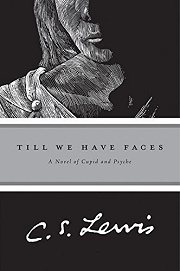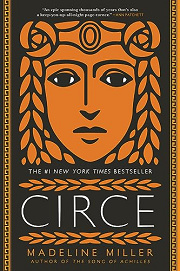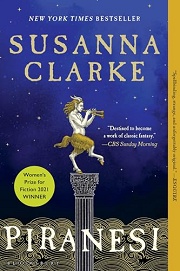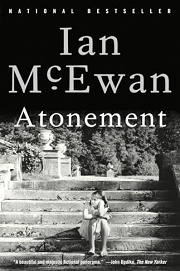Share your thoughts in a quick Shelf Talk!
Till We Have Faces by C.S. Lewis
In a harsh kingdom and a harsher family, a brilliant, guarded woman confronts gods, beauty, and the burden of being seen. Through a haunting retelling of an old myth, Till We Have Faces probes love, jealousy, and faith with luminous intensity—asking what it takes to truly know another, and oneself.
Have you read this book? Share what you liked (or didn’t), and we’ll use your answers to recommend your next favorite read!
Love Till We Have Faces but not sure what to read next?
These picks are popular with readers who enjoyed this book. Complete a quick Shelf Talk to get recommendations made just for you! Warning: possible spoilers for Till We Have Faces below.
In Till We Have Faces, did you enjoy ...
... a psychologically rich myth retelling that reframes a classical tale from a woman’s perspective?
Circe by Madeline Miller
If what gripped you in Till We Have Faces was hearing a silenced mythic woman finally speak, you’ll love how Circe lets the exiled witch claim her own story. Where Orual wrestles with her love for Psyche, her veil, and her grievance against the gods of Glome, Circe wrestles with gods who dismiss her, the ethics of transforming mortals (as with Glaucus and Scylla), and the cost of autonomy on Aiaia. Both books turn a well-known Greek myth on its head, center the inner life of a misunderstood woman, and use intimate, confessional voice to confront divine power, desire, and self-knowledge.
... an intimate, first-person account where the narrator’s perceptions are limited and misleading?
Piranesi by Susanna Clarke
If you were captivated by Orual’s partial vision—her insistence that Psyche’s palace wasn’t there, only to face a shattering revelation in her "second book"—Piranesi offers a similarly haunting journey. Its diarist wanders a vast House of statues and tides, misreading the Other and his own past until memory returns and the world is re-seen. Like Orual’s complaint to the gods, the narrator’s journals become evidence against himself, and the final recognition reframes everything you thought you understood.
... wrestling honestly with faith, doubt, and the silence of the divine?
Silence by Shūsaku Endō
If Orual’s accusation—her long complaint before the House of Ungit—and the devastating answer she receives moved you, Silence will hit the same nerve. Endō follows Father Rodrigues into 17th‑century Japan as he begs for a sign from a God who seems mute, is tested by apostasy, and must discern whether love can look like betrayal. The book probes the same hard questions that shadow Orual at the altar and in Psyche’s trial: what the gods (or God) actually demand, what love costs, and whether grace can meet a compromised soul.
... a confessional narrative that dissects possessive love, misreading, and the cost of truth?
Atonement by Ian McEwan
If Orual’s self-revelation—learning how her possessive love warped Psyche’s life, the Fox’s lessons, and her own rule behind the veil—kept you thinking, Atonement offers a modern echo. Briony Tallis misreads a scene and sets a tragic arc in motion, then spends a lifetime interrogating her motives through storytelling itself. As with Orual’s final vision before the gods, the book’s closing act forces a revaluation of guilt, mercy, and what a confession or story can and cannot repair.
... an allegorical struggle between sacred longing and human frailty, expressed through potent symbols?
The Power and the Glory by Graham Greene
If the layered symbols of Till We Have Faces—Ungit’s dark temple, Orual’s veil, the unseen palace—pulled you into deeper meanings, Greene’s story of the “whisky priest” in anti‑clerical Mexico works on the same allegorical register. The priest’s flight, his bottle, the mestizo betrayer, and the quiet moments of unwanted grace turn concrete things into spiritual signs. Like Orual’s journey from accusation to recognition, the novel wrestles with failure, sacrifice, and a grace that blooms where least deserved.
Unlock your personalized book recommendations! Just take a quick Shelf Talk for Till We Have Faces by C.S. Lewis. It’s only a few questions and takes less than a minute.





